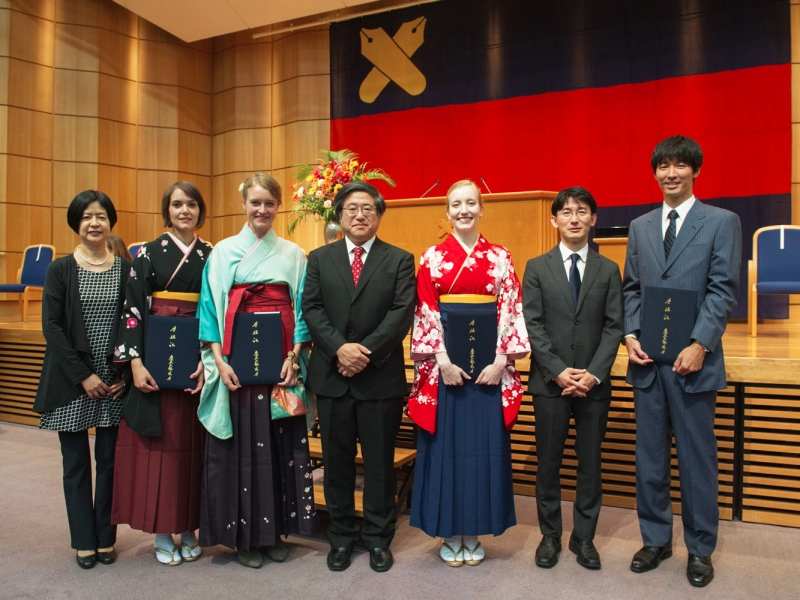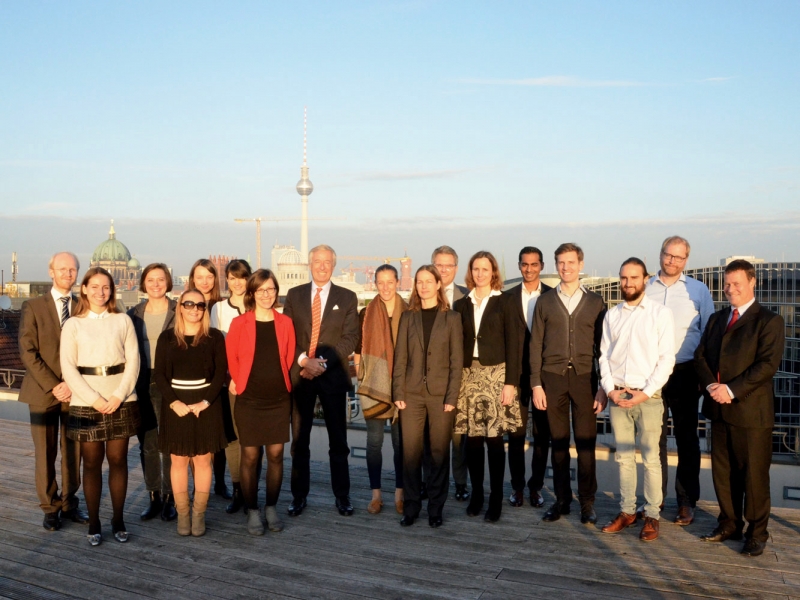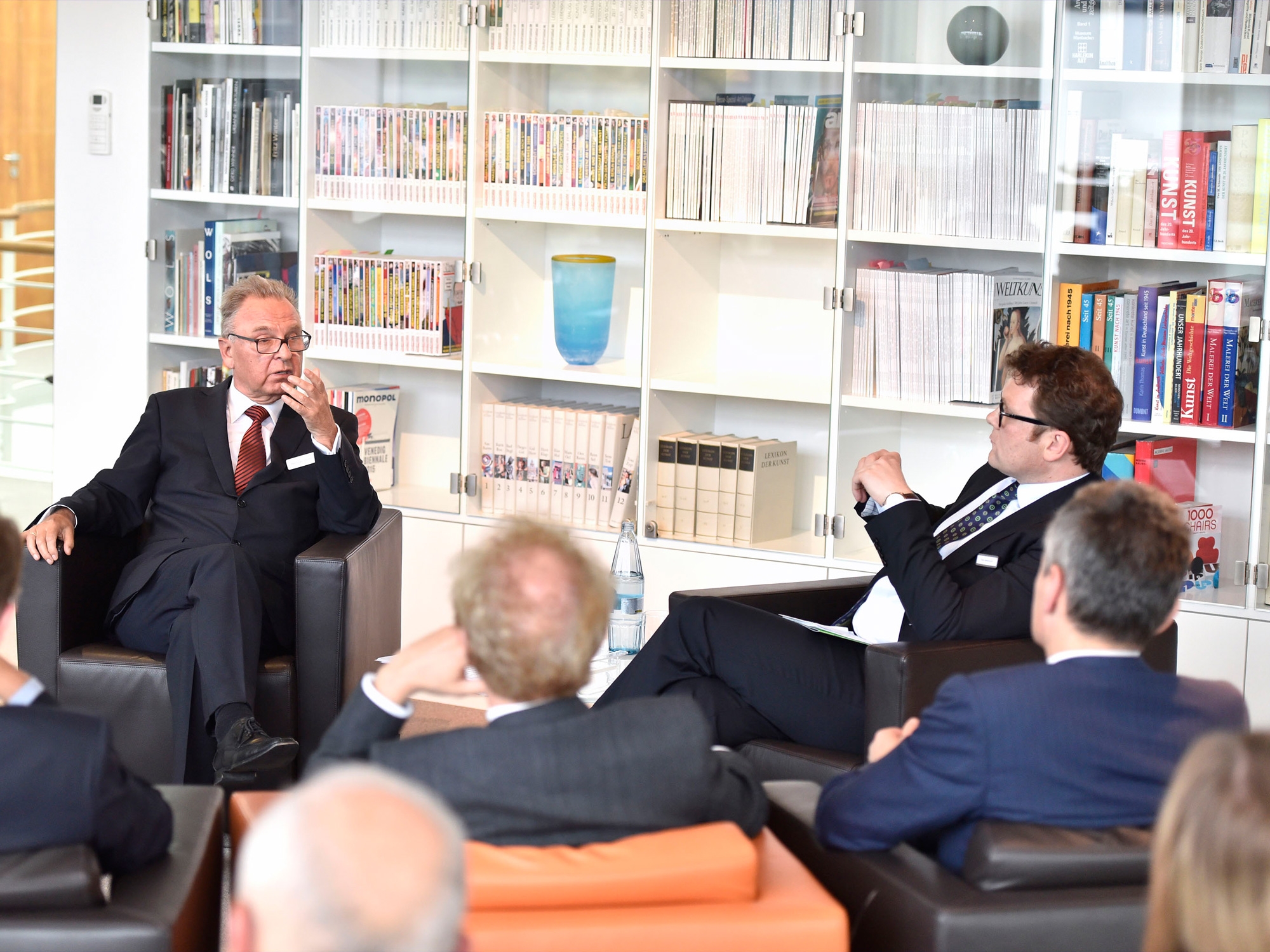
Promoting change and exchange
Events
With the »Haniel Lecture«, started in 1993, and the »Haniel Circle«, founded in 2007, the Haniel Foundation is proactively addressing social exchange and change.
Both events always strive to examine current economic, scientific, political, and social themes, with a variety of professional and national perspectives from experts contributing to an intensive discussion. While the »Haniel Lecture« presents talks from experts to a larger audience of up to 200 guests and subsequently offers room for joint discussions, the »Haniel Circle« sees a smaller circle of experts meeting in a discussion forum. The results are then published as part of the »Duisburg Dialogues« book series. The most recent volume was »Freedom and Public Welfare«.
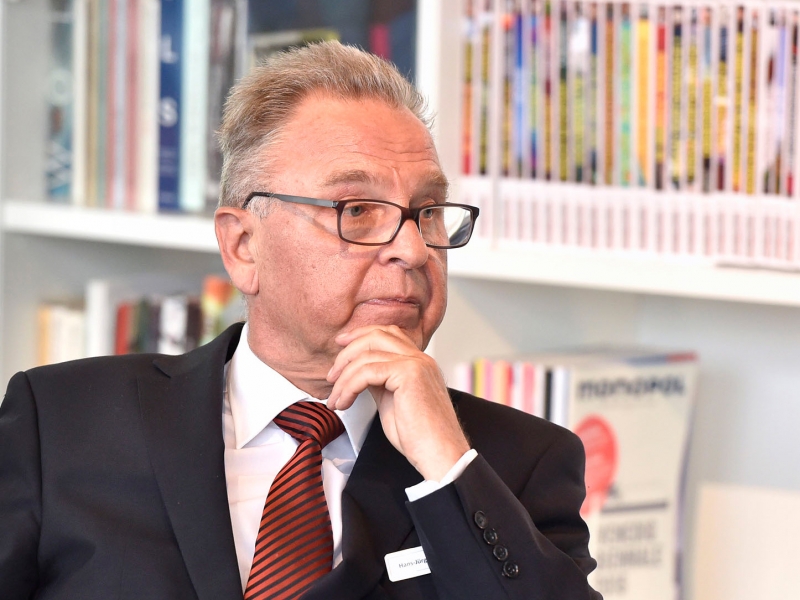
Haniel Circle 2015
Freedom and common Good
»A constitution aimed at upholding democracy and the rule of law as well as guaranteeing fundamental and human rights can never unilaterally eliminate the inevitable friction between a citizen’s individual self-interest and the public spirit or commitment to common good. A constitution does not guarantee a citizen unlimited freedom for ›egotistical interests‹, nor does it ›abruptly‹ confront a citizen with the ›moral imposition of a common welfare orientation‹ (Walter Berka). An individual does not immediately become a ›bad citizen‹ when they act for their own private benefit and pursue their own interests.«
Prof. Dr. Dres. H.C. Hans-Jürgen Papier, Scholar of constitutional law and long-standing President of the Federal Constitutional Court
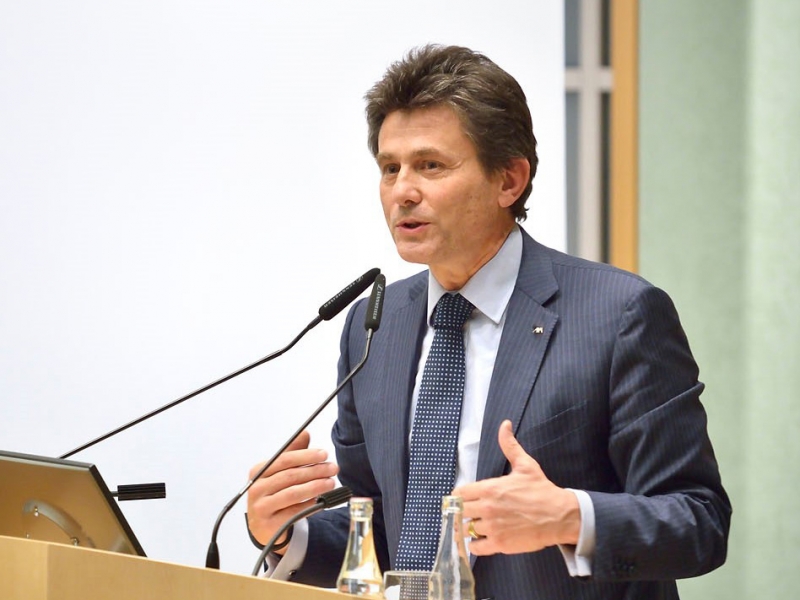
Haniel Lecture 2014
France's rolle in Europe
»It is very clear that what found- ed the initial vision is still rele- vant, but the world is now quite different from what it was 60 years ago (...). And if we want to go back to the roots, (...) I think we need to understand what the world we will operate in is. (...) But I am convinced that if we are able to do it together, to a certain extent if we are able to refound the French-German or German-French European vi- sion, there is a future for this continent, there is a future for the countries who now 60 years ago had the vision to share a fu- ture which had to be a future of peace and prosperity«
Henri de Castries, CEO and Chairman of AXA Group

Haniel Circle 2013
Resource Talent
»Noting that Germany is lacking in natural resources and therefore extremely dependent on ›talent as a resource‹ can almost be viewed as a truism. Incredibly, this realisation has yet to produce the correct conclusions. Promoting gifted young people is something that needs to begin much earlier. It must be done more extensively than has been the case so far. It is a mistake to believe that funding the gifted with scholarships and then leaving them to ›develop‹ by themselves is enough. They, too, need role models, encouragement, support, and enough space to accommodate their high levels of creativity. At the same time, there is still a big gap between most of the exist- ing funding programmes and the business world«
Prof. Dr. Dr. Gerhard Roth, Long-standing Director of the Brain Research Institute at the University of Bremen and President of the German Academic Scholarship Foundation
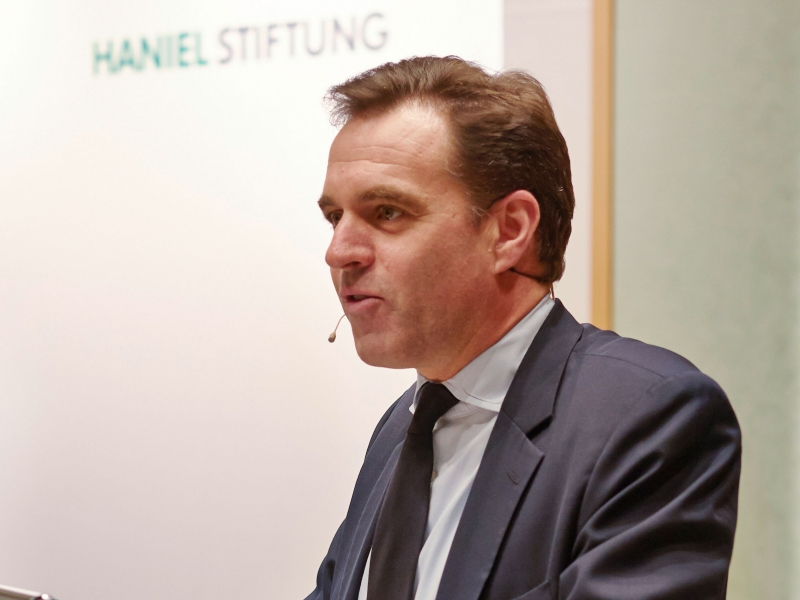
Haniel Lecture 2012
Civilisation – The West and the Rest
»Western ascendancy was a story of 500 years of institutional advantage. The West forged ahead, because its institutions and the ideas that were promoted by those institutions were superior. But in our time that advantage has gone in two ways: First, because the rest have downloaded at least some of our killer apps, but perhaps more worryingly, also because we have begun to delete our work ethic, indeed (...) to delete our scientific advantage by steadily dumbing down the quality of education that we offer our teenagers«
Prof. Niall Ferguson, MA D. Phil, Laurence A. Tisch Professor of History at Harvard University
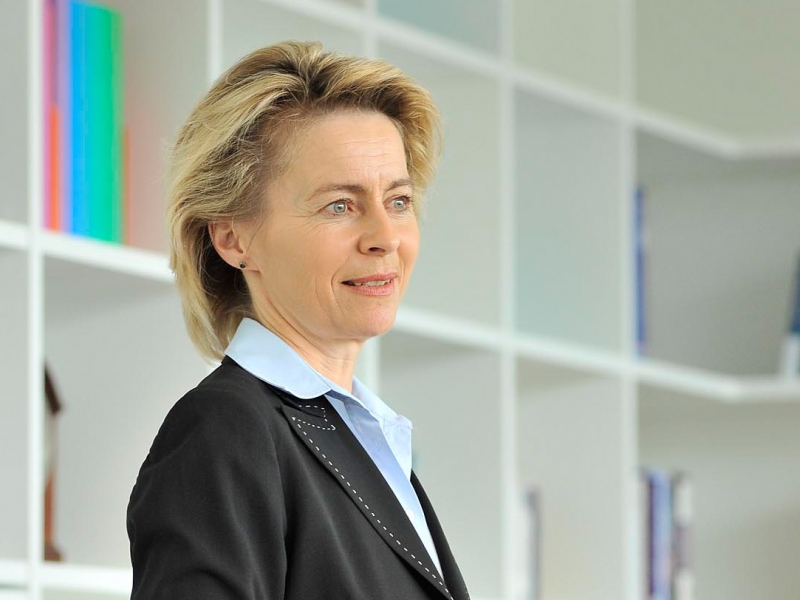
Haniel Circle 2011
Tomorrow's working World
»Those who so far have not been able to realize their full potential on the labour market must be targeted for promotion. And in this country, that means three groups that are familiar subjects of ongoing debates. It means women. It means socially disadvantaged children and youngsters. And it means the elderly. It is the duty of politics, industry and society to face up to these challenges together. For example, by improving upward mobility in the education system and with it children and young people’s opportunities for advancement – by introducing more all-day schools and other support from the beginning«
Dr. Ursula von der Leyen, 2009 until 2013 Federal Minister of Labour and Social Affairs, since 2013 Federal Minister of Defense in Germany
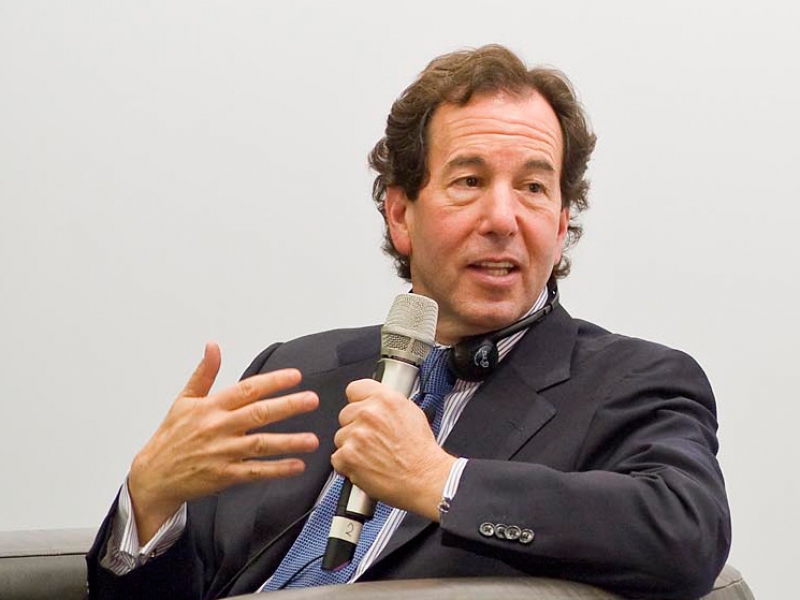
Haniel Lectures 2010
Live to Work or vice versa?
»We tend to confuse our profession- al roles with who we are as human beings, and because of that con- fusion, our own self-esteem ends up being hostage to the vicissi- tudes of the professional roles that we inhabit. If all of a sud- den something happens in the United States’ stock market and, even though you are 4000 miles away, things go quickly down- hill in midst of a crisis, it is pretty important to remember that the importance of this event is not personal. (...) If you begin to iden- tify strongly with your profes- sional role, you forget the great wealth of what makes you the per- son you are. And what happens when you leave this role behind? You get the feeling that your life no longer has any meaning«
Prof. Dr. Med. Ronald Heifetz, Founding Director of the Center for Public Leadership and King Hussein bin Talal Senior Lecturer in Public Leadership at Harvard Kennedy School of Government



